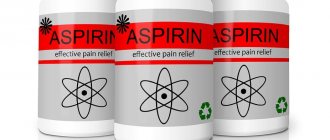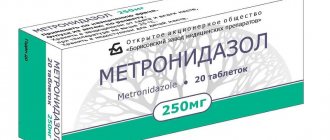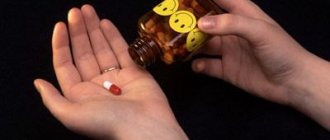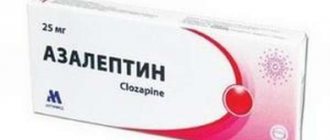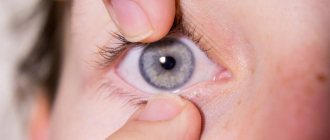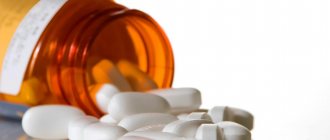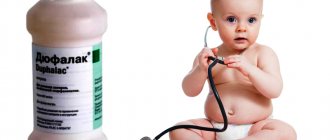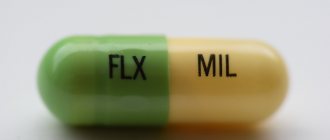Digoxin is a drug belonging to the group of cardiac glycosides and is used to treat heart failure. The drug is produced by many Russian and foreign manufacturers in the form of tablets and solution for injection. If the dosage is incorrect or in the presence of concomitant pathology, a toxic effect on the body may occur.
Who is prescribed Digoxin?
This drug is a targeted drug, recommended for use exclusively in patients with cardiac disorders.
The main indications for taking Digoxin are:
- chronic heart failure;
- tachycardia;
- arrhythmias (atrial fibrillation);
- atherosclerotic cardiosclerosis and other pathologies;
- in childhood - as a drug that eliminates rapid heartbeats.
Side effects
Even if the therapeutic dosage is not exceeded, adverse reactions to digoxin are possible:
- reduction in heart rate;
- decreased platelet count (thrombocytopenia);
- diarrhea, nausea, vomiting;
- headache;
- fainting (due to a temporary disturbance of cerebral circulation);
- depression;
- insomnia;
- allergies (usually in the form of a skin rash, but the development of anaphylactic shock occurs).
Prescription restrictions
Digoxin, being a herbal preparation, is nevertheless a fairly powerful glycoside, and its use is clearly prohibited in the presence of the following conditions:
- slow heart rate;
- rheumatic pain;
- unrecognized chest pain;
- heart attacks;
- ventricular tachycardia;
- heart blockades.
In addition, the drug is used with caution if there is a history or suspicion of hypokalemia or myxedema. It is prohibited to take the drug in case of a lack of calcium and magnesium, since as a result of Digoxin therapy and its pronounced diuretic effect, their indicators will decrease even more.
When treating elderly patients, children and patients with pacemakers with Digoxin, preliminary dose adjustment is necessary for safe administration.
Homeopathic remedies for poisoning
Preventive measures
To avoid intoxication, experts have established some rules and restrictions that must be followed:
- Patients using glycosides are recommended a special diet. It is based on eating foods containing large amounts of potassium: bananas, dried fruits, baked potatoes, etc.
- When individually prescribing a dose of digoxin, the accompanying abnormalities of the body, the patient’s age and other circumstances that may affect the active drug are taken into account.
Under no circumstances should you increase the dose of the substance yourself. If the heart function changes during treatment, then in this case it is necessary to consult your doctor. In order not to violate the permissible concentration of glycosides, medications should be taken at the same time, without violating the schedule.
If the patient has not violated the dosage schedule and has not taken the medicine, then this should be done as soon as possible. When more than two days have passed since your last appointment, you need to urgently contact a specialist. Digoxin can be harmful to health if taken with other drugs prohibited by the instructions.
All changes in the functioning of the body and the use of other medications must be agreed with a doctor. During treatment with cardiac stimulants, alcohol consumption is strictly prohibited. The effect of alcohol can increase the workload of the heart. In this case, the active medicine may become less active, causing the patient’s condition to worsen.
When taking glycosides for a long time, it is necessary to undergo special examinations (electrocardiogram), timely tests, etc.. By observing all the above points, you can avoid complications and poisoning of the body.
Factors leading to pharmaceutical overdose
Cases of Digoxin poisoning have increased significantly due to over-the-counter sales of the drug and self-medication of patients.
Important! Digoxin is a powerful drug that must be taken only as prescribed by a doctor!
Irrational use of the drug is the root cause of overdose.
The main factors leading to Digoxin overdose include:
- unauthorized increase in the dose recommended by the doctor;
- taken by older people without recalculating dosage;
- a history of renal failure;
- increased secretion of steroids by the adrenal glands;
- one-time use of drugs for arrhythmia;
- inattention of parents, as a result of which the drug is in places accessible to children;
- combined use with antibacterial agents leads to the accumulation of a substance in tissues that is incapable of normal elimination from the body under the influence of antibiotics;
- desire to commit suicide with Digoxin.
Important! The fatal dose is individual for each person and is approximately 25 mg of the substance.
The simultaneous use of Digoxin with alcoholic beverages is strictly prohibited - the result of such abuse is death!
Overdose symptoms
The main feature of Digoxin intoxication is the rapidity of the onset of characteristic symptoms - in less than an hour.
Signs of poisoning include:
- heart rhythm disorder;
- gagging;
- disturbance of consciousness;
- pathological drowsiness;
- deterioration of perception of the environment;
- heart pain, dizziness;
- temperature jumps;
- feverish conditions or unnatural chills;
- fainting;
- the appearance of shortness of breath;
- signs of oxygen starvation;
- tremor of the limbs;
- seizures;
- visual impairment;
- pallor or bluishness of the skin;
- hallucination.
Independent attempts to eliminate symptoms often lead to death . In the event of such intoxication, comprehensive measures should be ensured to provide emergency assistance to the victim and remove excess glycosides from his blood.
Clinical picture
The toxic effect of Digoxin can occur against the background of concomitant heart diseases, renal failure, disturbances in electrolyte metabolism, as well as when taking other cardiotropic drugs. Characteristic symptoms of poisoning:
- The appearance of dyspeptic disorders in the form of diarrhea, nausea and vomiting, lack of appetite.
- Signs of general intoxication of the body: headache, fatigue, confusion.
- Slow or increased heart rate.
- Violation of visual function - the appearance of a yellowish-green aura around objects.
- Possible development of manic-depressive psychosis, visual hallucinations, neuritis.
- Skin rash, urticaria.
- Gynecomastia.
The appearance of any of these symptoms or their combination may indicate an overdose of cardiac glycosides.
The lethal dose for humans is several times higher than the maximum daily dose. Single and daily doses are calculated by the doctor strictly individually, taking into account all the patient’s concomitant diseases.
Emergency care for Digoxin poisoning
The key to help with Digoxin poisoning is complete rest and drinking plenty of fluids.
If the victim is conscious, the following measures should be taken:
Hydrogen peroxide poisoning
- Call an emergency team.
- Rinse the stomach - drink warm salted water (up to 1 liter), then induce vomiting.
- Perform intestinal lavage.
- Give the victim any sorbent to drink that will absorb the unabsorbed substance.
- If the overdose was caused by excessive injection of the drug, then the patient must be administered a drug that can bind Digoxin. As a rule, such drugs are Atropine or its analogues.
Further therapy is carried out in a hospital setting. Here normal functioning is restored through specific therapy. In severe cases, the patient undergoes a cardiac pacing procedure, and antiarrhythmic drugs and potassium salts are administered.
The speed of treatment in case of Digoxin overdose is the key to saving the victim.
Hospital treatment
Further treatment of intoxication is carried out in a hospital setting. It is necessary to restore the normal functioning of the body through specific therapy. Ways to combat the consequences of poisoning:
- Cleansing the stomach using a special probe and cleansing the intestines (laxatives, enemas with solutions).
- Accelerates the removal of toxins from the blood. The need to prescribe the drug is dictated by the patient's condition. In the standard situation, Unithiol is used. In case of hypokalemia or hypomagnesemia, injections of magnesium sulfate or potassium chloride are given.
- For ventricular tachycardia, lidocaine injections are prescribed.
- Muscle blockade and bradycardia are combated with atropine.
- In the most difficult situations, cardiac pacing is used.
Consequences of intoxication
The most serious consequence of an overdose of Digoxin is death. It is also possible to develop diseases of the cardiovascular and other systems, and exacerbation of existing chronic diseases.
Digoxin poisoning is the result of human inattention and carelessness. Careful adherence to your doctor's recommendations will help you avoid exceeding the dosage. If signs of intoxication develop, a visit to a doctor is mandatory.
Mechanism of action and method of application
Has several effects on the cardiovascular system:
- Positive ionotropic effect - increasing the frequency of contractions of the heart muscle;
- Negative chronotropic effect - a change in the automaticity of the heart;
- Negative dromotropic effect - decreased conductivity of the electrical impulse;
- Positive bathmotropic effect (in case of poisoning) - increased excitability of cardiomyocytes;
The active substance affects the ion channels of the cell membrane, increases the amount of sodium and calcium, the latter element increases the contractility of cardiomyocytes.
The drug is administered intravenously and orally. When using the tablet form, it is well absorbed in the gastrointestinal tract (up to 80% of the total concentration), the half-life takes about two days. Distributed with the bloodstream throughout all parts of the body. It has some accumulative properties. The connection with blood proteins is 40%. The greatest effect is achieved either after twenty minutes or after eight hours, it all depends on the route of administration. The effect of the drug completely ends within three to seven days, the time depends on the functional state of the liver and kidneys.
Metabolism of the drug occurs in the liver, part is secreted into the duodenum and absorbed again, the rest (larger amounts) is filtered by the kidneys and excreted in the urine.
The dose is selected extremely carefully and individually, as there is a high risk of drug poisoning. Reception begins with a low concentration of the active substance, then, taking into account electrocardiography data, assessment of urination, breathing and examination, the amount of the drug is increased. For adults, the maximum dose is one and a half milligrams per day (one tablet or injection contains 0.25 milligrams).

